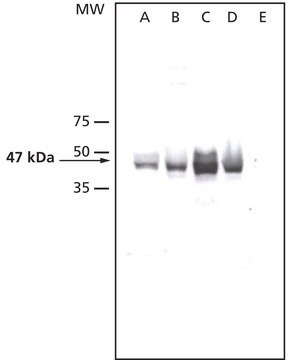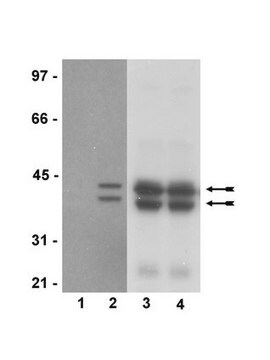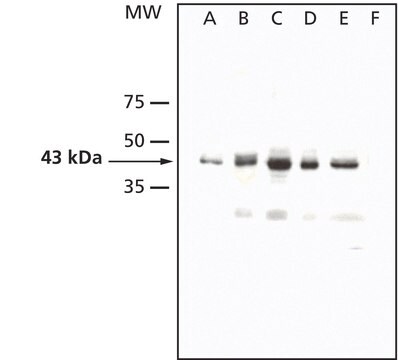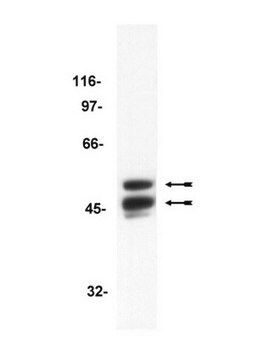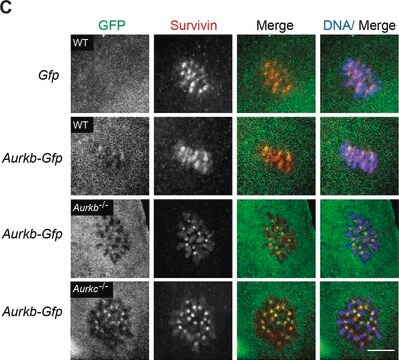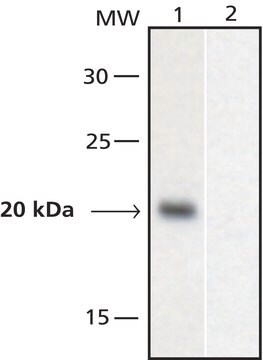M8318
Anti-AtMPK3 antibody produced in rabbit
affinity isolated antibody, buffered aqueous solution
Synonym(s):
Anti-Arabidopsis thaliana MAP Kinase 3
About This Item
Recommended Products
biological source
rabbit
conjugate
unconjugated
antibody form
affinity isolated antibody
antibody product type
primary antibodies
clone
polyclonal
form
buffered aqueous solution
mol wt
antigen 43 kDa
species reactivity
Arabidopsis thaliana
technique(s)
western blot: 1-2 μg/mL using extract (cytosolic fraction) of Arabidopsis thaliana leaves
western blot: 2-4 μg/mL using extract (cytosolic fraction) of Nicotiana tabacum leaves
shipped in
dry ice
storage temp.
−20°C
target post-translational modification
unmodified
Gene Information
Arabidopsis thaliana ... ATMPK3(823706)
General description
Specificity
Immunogen
Application
Biochem/physiol Actions
Physical form
Storage and Stability
Disclaimer
Not finding the right product?
Try our Product Selector Tool.
related product
Storage Class Code
10 - Combustible liquids
WGK
nwg
Flash Point(F)
Not applicable
Flash Point(C)
Not applicable
Choose from one of the most recent versions:
Already Own This Product?
Find documentation for the products that you have recently purchased in the Document Library.
Our team of scientists has experience in all areas of research including Life Science, Material Science, Chemical Synthesis, Chromatography, Analytical and many others.
Contact Technical Service
